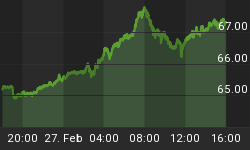These days a lot of hee-ing and haw-ing is coming out of the Central Bank's everywhere. To raise or not to raise especially as economies face difficult challenges both within their respective monetary cycles and the challenges to attract investors. No matter where one looks these days everybody's grinding over data to support or not support their hypothesis of what their CB might do - most of all the bond and currency traders. USA raised, Japan held, UK held, next up is the ECB in March. We did find it rather tittilating that Greenspan on his post-Fed walkabout actually uttered something more intelligible than "we might raise or we might not - it all depends"; although it was found irresponsible by many to talk about business just one week after leaving office.
Currently we are looking at the ECBs upcoming meeting with little trepidation as we think the ECB will likely raise again 25 bp to 2.5%. Why do we think this ?
Although the data coming out of Euroland has been getting better these last quarters along with the near-psychotic card reading of the various blitz industry and consumer surveys, as though that was weighing heavily in Monsieur Trichet's inbox - it's a puzzle part, not the key - the most important factors in our opinion continue to remain the accomodative monetary stance and the fact that the US Fed has continued its regime of rate rises. Of course the usual suspects of manufacturing output, exports and business sentiment continue to climb while the consumer / retail sector is wobbly at best.
The ECB is not wont to let the spread to the US Dollar get too far out alignment as this is neither conducive to important trade factors nor is it buoyant for the Euro. If the Euro could and should ever be an alternative to the USD then at least it must put on a reasonable "show" in our opinion that it is worthy to hold its head accordingly high with the others, fiat or not.
As can be seen in the graphic below, the ECB has not been remiss in its duty to pump liquidity into the Eurozone these last five years as it has been running a "good" 6% YoY M3 increase. Hence the EU core consumers cannot say their Central Bankers have not given them enough money to play with. The fact that home prices in selected locations are now and have long been showing outlying price ranges need not surprise buyers as Trichet has himself spoken of "robust M3 growth" - To wit, Spain, Italy, France, Ireland and elsewhere have shown "bubble tendencies" to say the least. It would seem Trichet took a page from Greenspan's interest rate playbook.
Eurozone M3
Source: US Federal Reserve
Also shown is that the inflationary target of circa 2% has been firmly upheld along the lines of CPI hence the real interest rate can be said to be near zero (CB Rate - Inflation Rate). Is it a wonder then that real estate markets and certain retail items are frothy?
Now the ECB is starting to reverse paddle at a justifiably correct time in reeling in the froth by raising rates and curbing any further housing rises. The one difference to the US market being that the real estate boom in Eurozone was not accompanied by strong development hence lowered supply increased the demand for housing "in the right neighbourhood".
Eurozone CPI
Source: US Federal Reserve
ECB Decision Meetings
Source : ECB
To conclude, with the economic data for the Eurozone coming in hard and fast and positive combined with the attendant robust M3 growth thus far, we are looking for an upcoming rate rise at the beginning of March for the Eurozone.















